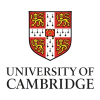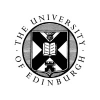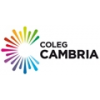Snabbfakta
-
- Paris
Ansök senast: 2025-01-26
Research Engineer in Immunology (M/ F)
About us
Institut Curie is a major player in the research and fight against cancer. It consists of a Hospital group and a Research Center of more than 1000 employees with a strong international representativeness. The objective of the Research Center is to develop basic research and to use the knowledge produced to improve the diagnosis, prognosis, and therapeutics of cancers, as part of the continuum between basic research and innovation, at the service of the patient.
Mission
Context
Innate immune mechanisms protect mammals from pathogen infection and play a role against tumors. Recent work documented that a subset of innate immune proteins encoded by mammals, including humans, originate from bacterial defence proteins (1, 2). Bacteria indeed utilize antiphage systems to fight off viruses named phages. There is currently a dozen examples of antiphage proteins that were conserved during evolution, and gave rise to prominent members of innate immunity, including cGAS/STING and gasdermins. In collaboration with the team of Aude Bernheim (Institut Pasteur), we coined the notion of ancestral immune modules, which correspond to the proteins and protein domains playing an immune role in bacteria and eukaryotes (3). We demonstrated that exploring ancestral immunity allows to discover novel immune proteins in eukaryotes. By combining protein sequence analysis and phylogeny, we were able to identify human homologs of recently-discovered antiphage proteins of bacteria, and document their antiviral potential (4).
The project
The novel human immune proteins identified in this proof-of-principle study appear to be the tip of the iceberg, as recent unpublished analysis by our teams suggest that the human genome encodes for dozens of uncharacterized ancestral immune modules. We recently obtained an important grant from the Impact Santé programme, a scheme dedicated to bolster high-gain biomedical research. Our project, named EvoCure, aims at exploring ancestral immune modules to design innovative immunotherapies, targeting tumors and autoimmune pathologies. The recruited engineer (M/F) will join the EvoCure team and study the role and molecular mechanisms of ancestral modules, using molecular and cell biology techniques.
References
1. F. Rousset, Trends Immunol. 44, 945–953 (2023).
2. H. E. Ledvina, A. T. Whiteley, Nat Rev Microbiol (2024), doi:10.1038/s41579-024-01017-1.
3. A. Bernheim, J. Cury, E. Z. Poirier, PLoS Biol. 22, e3002717 (2024).
4. J. Cury et al., Cell Host & Microbe, S1931312824002890 (2024)
Missions
Conduct a research project.
Analyse and present data.
Participate in the organisation of the laboratory and the Department.
Bibliography.
Profile
Candidate Profile
Training and skills required
- Training: PhD in Life Sciences are welcome to apply
- Scientific skills: Experience in basic cellular and molecular biology techniques will be considered favourably
- Language skills: English, oral and written
- Transferable skills: ability to work in a team, excellent communication skills including oral presentations to specialized and non-specialized audiences
All our opportunities are open to people with disabilities
Contract information
Type of contract: Fixed-term contract.
Starting date: As soon as possible
Duration: 18 months
Working time: full time
Remuneration: according to the current grids
Benefits: Collective catering, reimbursement of transportation fees up to 70%, supplementary health insurance
Location of the position: Paris, France
Reference: NA
Contact
Please send your CV and letter of motivation
Publication date: 26/11/2024
Deadline for application: 20/12/2024
Institut Curie is an inclusive, equal opportunity employer
and is dedicated to the highest standards of research integrity.
https://euraxess.ec.europa.eu/sites/default/files/brochures/eur_21620_en-fr.pdf







